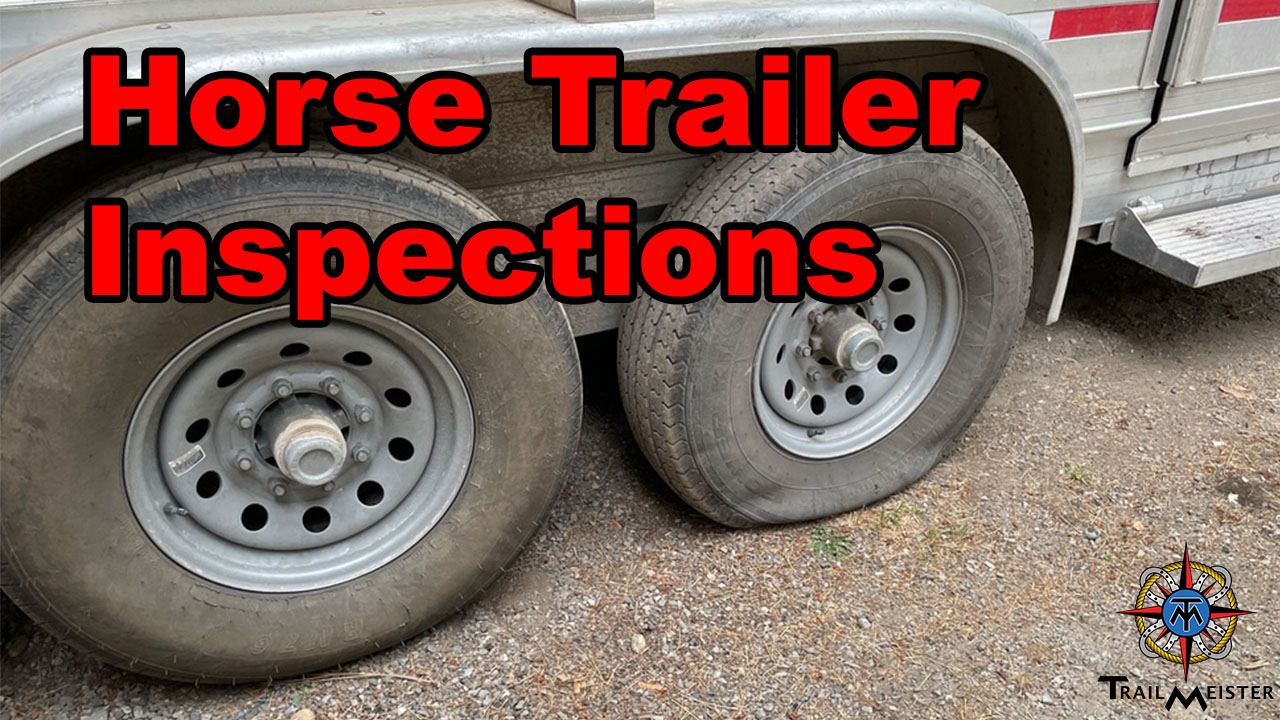I can assure you that laying on the ground, beside the road, under a truck, trying to repair a broken electrical connector on a 100-degree day isn’t fun. Ask me how I know!
The trailer lights had flickered before the trip to Mt. Adams in Washington state. Generally, quickly disconnecting and replugging the connector corrected the issue, at least briefly. Notice that I didn’t say repaired! That failure to fix the underlying problem was why I was lying in the gravel.
It’s essential to take care of your horse trailer. If you don’t, you will eventually have problems traveling to or from the trailhead. You can avoid my roadside repair hassles by making regular trailer inspections a habit.
Start by looking at your trailer carefully. Check for anything that needs to be corrected or fixed. Here are some simple checks that will help keep your trailer in good shape, safe for your horse, and keep you from lying in the dirt on the side of the road.
Check the Floor:
It goes without saying that the trailer’s floor needs to be strong. If the floor is made of wood, pull out the mats and try poking the wood with a knife or screwdriver. If the blade goes in easily, the wood is rotten and needs to be replaced. For metal flooring, look for rust or holes. Make sure to check underneath the trailer, too. It’s easier to crawl under the trailer at home and not alongside the road!
Undercarriage:
The undercarriage is everything under the trailer floor except the tires. A little rust is okay, but cracks in the metal or broken parts are not.
Coupler:
The coupler connects the trailer to your vehicle. It needs to be solid and robust to keep the trailer safely attached. Check the safety chains and the breakaway brake system. Also, ensure the jack works well and smoothly.
Lights:
Turn on all the lights, including the turn signals, to ensure they work. Keep spare bulbs on hand to replace them if needed.
Electrical problems are the worst for me. The electrical connections between our trucks and horse trailers are prone to all sorts of problems. The blades that provide the electrical connection are prone to corrosion, and the plugs themselves tend to fall apart. Worse still, electrical issues tend to be sporadic; sometimes, they work, and other times, they don’t. Troubleshooting an intermittent problem is tricky. Without being able to trigger the problem reliably, diagnosing the underlying cause becomes much more interesting.
Tires:
Check the tires for cracks, which indicate rotting and the need for replacement. Also, make sure the tires are inflated to the proper pressure. Remember the spare! Remember that trailer tires can have lots of tread remaining but may still need to be replaced. Most of us will never wear out a trailer tire before we lose it to decay.
Hinges, Latches, and Springs:
Check all the hinges, latches, and springs on doors and windows. If any are broken, replace them.
Critters:
Unlike our horses, some animals like to hang out in our trailers and make homes. Look for any nests and remove them to avoid unwanted hitchhikers.
If you don’t know how to do some of these things, that’s okay. We’re not all mechanically inclined (I know I’m not!). Just take your trailer to a professional. A pro can also help you with more complicated tasks like greasing bearings and brake adjustments.
Finally, if you’re looking for new places to ride and camp, check out www.TrailMeister.com. It’s the world’s largest and most comprehensive horse trail and camp guide.
In short, taking care of your horse trailer is very important. By doing these checks and fixing problems early, you can avoid breakdowns and keep your trailer in good condition. Regular preventive maintenance will keep your towing rig at its best and keep you from an unwelcome delay en route to the trailhead.


